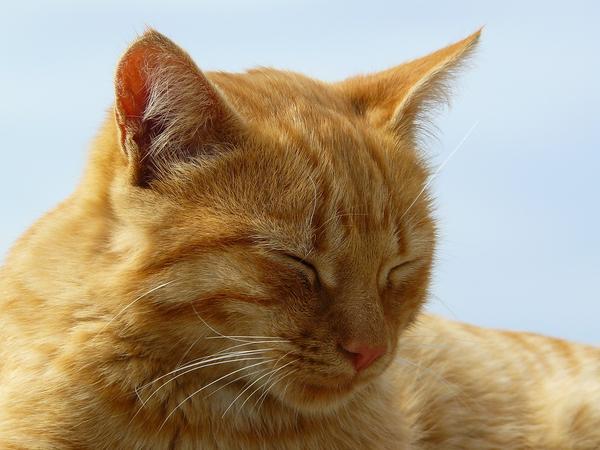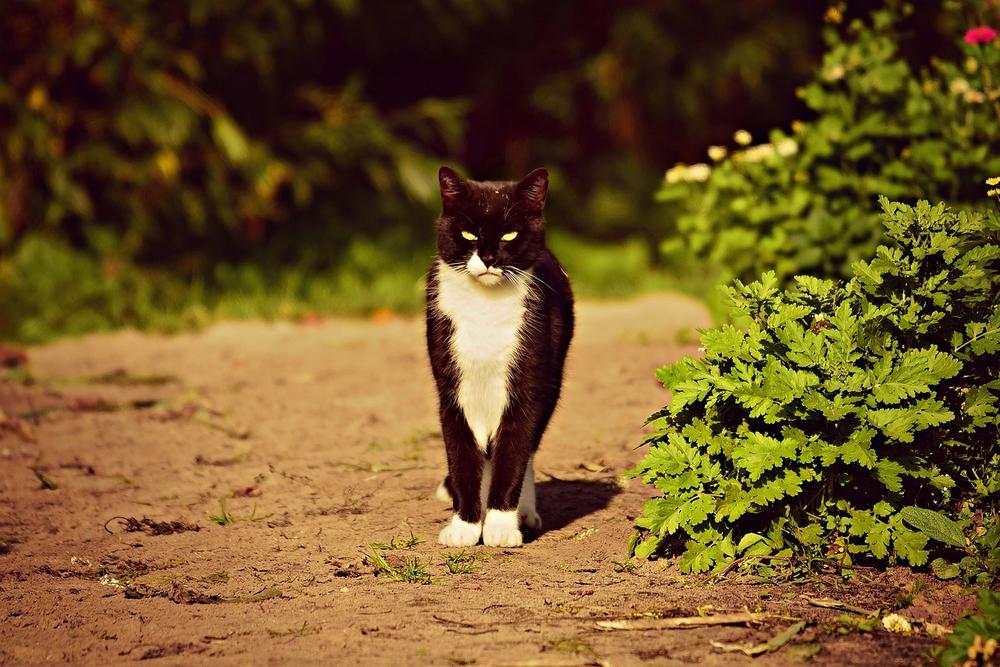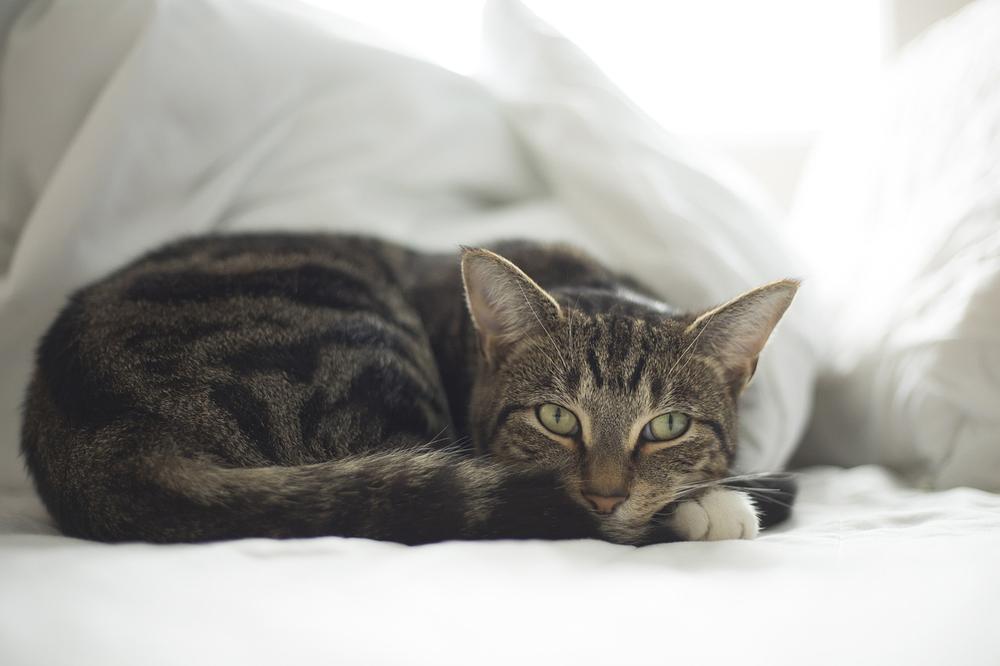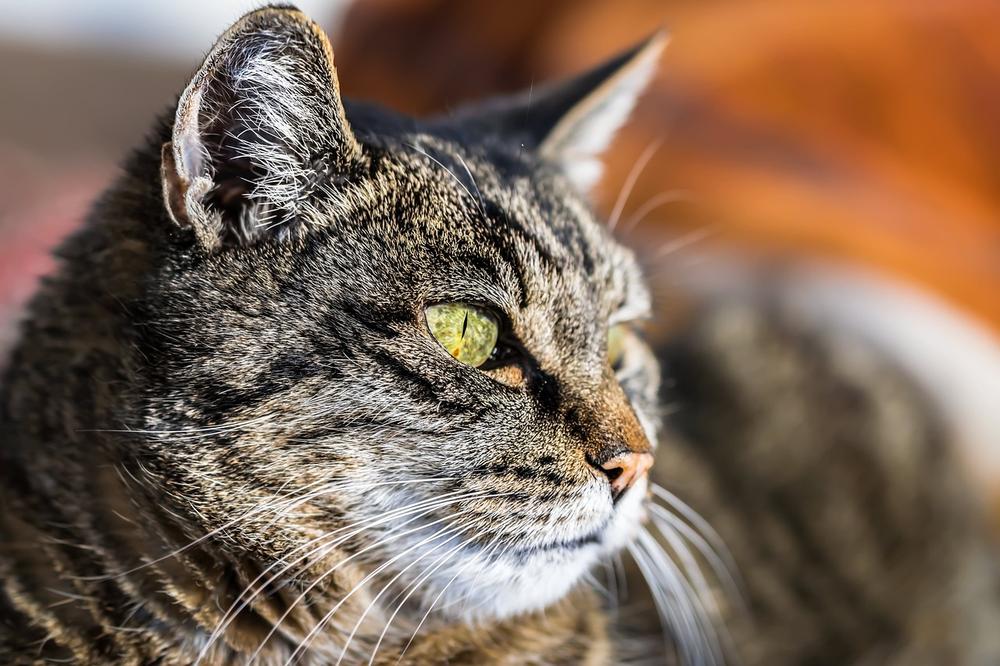Can Cats Have Cinnamon? Is It Good or Bad for Them?

Concerned about the potential harm cinnamon may cause your feline friend?
Wondering if a sprinkle of this sweet spice could send your beloved cat on a wild, whiskered adventure? 😺
Well, let me ask you this:
Are you ready to uncover the truth?
Let's dive in.
Cinnamon Safety: How Much Can Cats Eat?
The amount of cinnamon that is safe for cats to consume is still unknown.
It varies based on the cat's size and individual tolerance.
Here's the thing:
While cinnamon is not considered poisonous to cats, it can present risks to their health.
And this is because of its different forms and the compound coumarin.
You see, cats lack a specific liver enzyme that makes them particularly vulnerable to cinnamon-related issues. So even though it's unlikely to cause toxicity under normal household use, it’s best to err on the side of caution and avoid giving cats any amount of cinnamon.
Just to be safe.
This means keeping cats away from cinnamon in all forms — whether it's ground cinnamon, cinnamon sticks, or cinnamon-scented products.

We don't want any potential poisoning happening.
And let me tell you something else important:
Commercial cat food does NOT include cinnamon.
Yup, they know it can be dangerous for our feline friends.
Lastly, it's also recommended to avoid feeding cats dairy products.
Why?
Well, most cats are lactose intolerant.
That means they just can't handle dairy.
Main points I'll expand upon further down this article:
- Cats lack the enzyme to break down cinnamon, causing potential toxicity.
- Cinnamon contains compounds that can prevent blood clotting in cats.
- Large doses of cinnamon can lead to clotting problems, mouth irritation, and burns.
- Essential oil use poses a higher risk to cats due to concentration.
- Cats can be exposed to toxic amounts of cinnamon through ingestion or absorption.
- Cinnamon candles should be kept away from cats and stored securely.
- Cats cannot break down coumarin in cinnamon, leading to blood-clotting issues.
- Cats should not consume garlic, chives, chamomile, or other certain herbs.
- Cinnamon toxicity can cause symptoms like coughing, vomiting, and liver disease in cats.
- Prompt treatment, including washing affected areas and seeking veterinary care, is crucial for recovery.
And here's why I strongly advise against allowing cats to consume cinnamon...
It can lead to serious health issues and blood clotting problems in our feline friends...
What Happens if Your Cat Eats Cinnamon?
Cinnamon can harm your cat
You know, cats are always curious.
They like to explore and get into things they shouldn't.
And sometimes, that includes cinnamon.
But let me explain why that's a problem for them.
You see, cats can't handle some of the compounds found in cinnamon. One of these is called coumarin.
It messes with their blood clotting ability, causing issues when they eat cinnamon.
Now, you might not think it's a big deal, but trust me, it is!
If cats eat too much cinnamon, it can lead to internal bleeding and damage to their organs.
And it gets even worse...
Cats have sensitive skin that easily absorbs toxins.
And guess what?
Cinnamon has another compound called phenol, which can irritate and even burn their delicate skin. So, keep cinnamon far away from your furry friend!
Oh, and here's something else important:
Cats are even more at risk if they come into contact with higher concentrations of harmful compounds found in essential oils containing cinnamon.
So those fancy cinnamon candles?
Yeah, ensure to store them safely, nowhere near where your cat can reach.
By the way, did you know there are other foods you should avoid feeding your cat?
Foods like garlic, chives, chamomile, St. John's wort, lemongrass, mint, oregano, and tarragon. Keep those out of their diet, and you'll be their hero!
Your cat will definitely thank you for looking out for their health!
And if you found this information about cinnamon alarming, you might also be wondering about other spices that can affect your cat.
I've got you covered! In my blog post, Can Cats Eat Spearmint, I dive into whether spearmint is safe for our curious companions.
Signs of Cinnamon Toxicity or Allergic Reaction
Signs of cinnamon toxicity or allergic reactions in cats can show up in various ways:
- Coughing and wheezing: If you notice your cat coughing or wheezing more than usual, it may be a sign of cinnamon toxicity.
- Vomiting and diarrhea: Cinnamon ingestion can upset your cat's stomach, leading to vomiting and diarrhea.
- Altered heart rate: Pay attention to any changes in your cat's heart rate, as cinnamon toxicity can affect the cardiovascular system.
- Liver disease: Excessive intake of cinnamon can have negative effects on your cat's liver.
- Low blood sugar levels: Some cats may experience a drop in blood sugar levels after cinnamon exposure.
- Respiratory distress: In severe cases, cats may struggle to breathe properly due to cinnamon toxicity.
- Organ failure: High amounts of cinnamon can lead to organ failure, so it's important to seek veterinary help immediately.
- Gastrointestinal upset: Along with vomiting and diarrhea, cinnamon toxicity can cause irritation and upset in the gastrointestinal tract.
- Mouth redness and irritation: Allergic reactions to cinnamon can manifest as redness and irritation in the mouth area.
- Excessive salivation: Cats may drool excessively if they are allergic to cinnamon.
If you suspect cinnamon toxicity or an allergic reaction in your cat, consult a veterinarian for proper diagnosis and treatment. 😺

Learn more: If you're curious about whether cats can safely eat oregano, Can Cats Eat Oregano has all the answers you need. Discover what I've learned about this topic, and make sure your feline friend stays happy and healthy!
But what happens if your curious feline friend does consume cinnamon?
I'm glad you asked, as taking immediate action is key in preventing complications...
What to Do if Your Cat Eats Cinnamon
If your cat ate cinnamon, you need to act fast.
First things first, call the vet immediately. They can guide you on what steps to take and provide treatment options.
Treating a cat that has consumed cinnamon may involve washing the affected area and seeking professional medical care.
Your vet may use gastric lavage, activated charcoal, anti-vomiting medication, and liver support medicine as treatment options.
Regular blood tests, oxygen therapy, fluid therapy, and vitamin K might be recommended for your cat's well-being.
The prognosis for cats with cinnamon toxicity varies depending on their symptoms and how quickly they receive treatment.
While using cinnamon in cooking is generally safe, be mindful of drinks or plants containing it, as cats can be attracted to them.
Make sure to keep cinnamon out of reach and wash off any contact from your cat's skin to prevent ingestion.
Consider getting pet insurance to help with the cost of treating health conditions.
On top of that, avoid purchasing cinnamon essential oil diffusers and keep cats away from cinnamon when using it.
And it gets worse:
While cinnamon can be a delicious and aromatic spice for humans, it can have detrimental effects on our feline friends.
So, let's dive deeper into the potential dangers of cinnamon for cats and why you need to proceed with caution:
Types of Cinnamon
There are two types of cinnamon:
Cassia and ceylon.

Cassia has higher levels of coumarin, a toxic compound for cats. So, make sure any cinnamon you give or use around cats is coumarin-free.
Luckily, kitties also hate the taste and scent of ground cinnamon, so it can repel them from certain spots. Besides cassia, there's ceylon cinnamon too.
Be aware that cassia contains more coumarin, which is deadly for rodents. So, if you're trying to keep pesky critters away, that might be something to consider. Remember, cinnamon can have varying effects on different animals, so always prioritize their safety.
And that wraps up today's article.
If you wish to read more of my useful articles, I recommend you check out some of these: Can Cats Eat Fennel, Can Cats Drink Energy Drinks, Can Cats Have Coconut Oil, Can Cats Eat Strawberry, and Can Cats Eat Bread
Talk soon,
-Sarah Davis